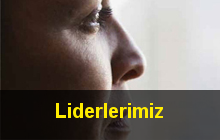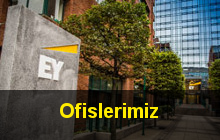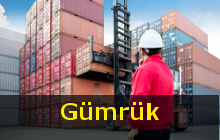
Competition law developments in 2022
Cihan Bilaçlı
Competition Law in 2022 in Turkey has been highly active. According to published statistics, the Authority decided on 386 cases last year; administrative fines of approximately 1.8 billion TL were given in 29 inspections and the sectors with the highest number of cases were food, information technologies and platform services.
1. Competition cases & exemption files
1.1. Hub&Spoke infringements are still being inspected
The inspection, which is the continuation of the FMC Retailers-1 decision, one of the most popular files in 2021, even in the history of the Institution, concluded in the last days of the year. Within the scope of the file in which the highest penalties of the year were given, it was concluded that various competitively sensitive information such as future prices, price transition dates, and campaigns were shared between rival retail undertakings through their joint suppliers and that coordination was ensured regarding sales prices and price increases. Since retail undertakings were punished within the scope of the same activities in the previous file, no administrative fines were imposed again in accordance with the “ne bis in idem” principle in this investigation.
1.2. First infringement decision regarding labor markets have been made
No-poacher agreements between rival undertakings are being discussed on the agenda both in Turkey and also worldwide.
In the Private Hospitals decision, the agreements of some hospitals not to transfer employees from each other were considered a violation of competition and this violation was considered to violate competition in terms of its purpose. In other words, it was pointed out that even though such agreements are not implemented, they may be considered as a violation of competition even if they do not have an impact on the market.
1.3. Dealers cannot be prevented from selling on e-markets
The BSH decision taken in the last days of 2021 revealed that there is no exemption for the practices of completely restricting the sales of dealers through online platforms, and it has been on the agenda for the past year.
Regardless of the market share of the undertakings that have adopted the selective distribution system, the complete restriction of their dealers' sales from online marketplaces has been identified as a behavior that violates competition and cannot be exempted.
On the other hand, regulations on vertical agreements published by the European Commission in May make it possible as a rule to restrict sales from online marketplaces. It is understood that the Authority approach is completely different in this regard.
1.4. Negative matching agreements may cause outcomes such as market share
One of the important decisions released last year was the Modanisa/Sefamerve decision, in which negative matching agreements were evaluated for the first time. The Authority did not exempt the contract between the undertakings, which includes restrictions on online advertising.
In the decision, it was stated that not targeting only the name of the registered trademark does not exceed the limits of the protection of the trademark right and can benefit from the protection stipulated in the Industrial Property Law. It is important to state that the obligation to add a negative keyword is a kind of customer/market share agreement; because in this case, it will be possible to accept the agreements as a clear and grave violation.
1.5. Data use and management policies of dominant undertakings may constitute abuse
Nadirkitap and Facebook decisions taken in 2022 make important determinations about the methods of using and managing data of undertakings.
The Authority decided that the second-hand book sales platform Nadirkitap's members who want to sell their products through competing platforms do not provide them with the book inventory data, making the activities of the rival platforms difficult. In the decision, the importance of data and data portability in terms of digital markets was emphasized many times, and it was stated that any limitation in this direction would create artificial entry costs, hinder entries and complicate the activities of competitors. Therefore, the undertaking is obliged to provide the book inventory data in an accurate, understandable, secure, complete, free and appropriate format to the relevant vendor members, upon request.
In the Facebook decision, the reasoned decision of which has not yet been published, it was decided that by combining the data collected from different core services of the enterprise, it complicates the activities of the competitors and creates a barrier to entry to the market. In terms of the result reached, it is understood that the Authority has adopted a similar approach with the German competition authority (Bundeskartellamt).
2. Settlement & commitment decisions
With the legislative amendment made in 2020, the institution of reconciliation became a part of Turkish competition law. With the entry into force of the Reconciliation Regulation, it is observed that many undertakings prefer to benefit from the material and procedural benefits of reconciliation.Administrative fines to be applied to undertakings are calculated by reducing 10% to 25% within the scope of reconciliation.
The subject of the files that are terminated by reconciliation is generally the maintenance of the resale price and internet sales restrictions. The recent strict approach of the Authority to these two issues and inflationary conditions may have affected the undertakings' preference for reconciliation. In addition, the fact that the Authority continues to give the highest discount rate for all files except two can be considered as an encouraging factor.
Along with the reconciliation, the commitment mechanism included in the competition law seems to have been adopted in the same period. As it is known, undertakings whose commitment applications are accepted are not subject to administrative fines within the scope of the investigation. Within the framework of the announcements made by the Authority, the commitment packages presented by the parties in the Tadım, Martı, Mey İçki and Baymak files were found to be suitable for resolving the competition problems and their files were terminated. The relevant decisions show that the commitment mechanism can be used in the preliminary investigation process as well as the investigation.
3. Mergers and acquisitions
Significant amendments have been made on Communique numbered 2010/4 in previous year. The notification thresholds, which have remained unchanged for the last 10 years, have been increased approximately eight times, the notification form and the concept of the affected market have been amended and transactions involving the takeover of technology enterprises have been subject to notification regardless of some thresholds.
An important amendments made in the Communique No. 2010/4 this year was the regulation that exempted technology enterprises from some of the notification thresholds. A threshold of 250.000.000 TL is not sought for the acquisition of technology enterprises operating in Turkey or having R&D activities or providing services to users in Turkey. In the Communique, “technology undertakings” are defined as undertakings or related assets operating in the fields of digital platforms, software and game software, financial technologies, biotechnology, pharmacology, agrochemicals and health technologies. However, there were uncertainties about how this definition would be handled in practice. In a few decrees published this year, the undertakings engaged in the following activities were considered as technology enterprises and provided guidance:
- Provider of residential Wi-Fi solutions for broadband operators and complementary software services that enable broadband operators to deliver and manage Wi-Fi networks,
- Life insurance services offered through digital platforms,
- Production of software interfaces and ready-to-use drugs on behalf of pharmaceutical companies,
- Pharmaceutical and software activities for animals,
- Diagnostic imaging activities in the biotechnology sector,
- Cyber security; software services in the fields of user virtualization, content sharing and collaboration, networking and information technologies, - Online auction platform services for buying and selling used heavy machinery, equipment, vehicles and industrial products,
- Software services to manage the systems of reinsurance companies.
As can be seen, updates such as notification thresholds, affected market definition, and technology initiatives made 2022 active in terms of mergers and acquisitions. Turnover growth brought about by inflationary economic conditions may increase the number of transactions subject to notification in the upcoming period. Likewise, concentration transactions of foreign undertakings with limited operations in Turkey and with foreign exchange-based balance sheets may also be subject to more frequent reporting, as average dollar and euro exchange rates nearly doubled in 2022. Leaving the economic conjuncture aside, it would not be wrong to say that the competition law agenda in terms of mergers and acquisitions will also be active in 2023.
4. On-site inspections
As emphasized many times in the decisions of the Authority, on-site inspections, which are the most important means of obtaining evidence, continued to be discussed in 2022 as well. After the amendment in the law made two years ago, many blocking or making it harder were faced with the investigation of correspondence on mobile phones, Whatsapp and Microsoft Teams applications etc.
In the decisions published last year, it can be said that there is no general change in the approach of the Authority, which considers the deletion of correspondences as preventing or complicating them, regardless of their nature, and does not take into account the return of correspondence.
The timing of the deletion is very important, since penalizing undertakings for preventing or making on-site inspection difficult is only possible if the deletion is carried out during on-site inspection. This issue was emphasized in the decision of Yeni Mağazacılık, and no penalty was imposed, stating that the deletion process could not be proven with concrete evidence such as log-record.
In 2022, there were also developments before the administrative courts regarding on-site inspections. In its decision dated 15.04.2022, Ankara 2nd Administrative Court decided to suspension of execution by emphasizing that the deleted correspondences were accessed on the phones of other employees, that the phone whose data was deleted was a personal phone, and that the deleted correspondences did not include matters related to company affairs. This decision differed from previous decisions and was interpreted as the court's high standard of proof. However, this opinion of the court does not seem to have been adopted by other courts; because similar defenses are not respected in these decisions taken at later dates. Therefore, a more stable jurisprudence needs to be formed in order for the approach to on-site inspection practices to become uniform.
It is clear from the decrees published last year that the Authority has maintained its strict stance regarding on-site inspections. Uncertainties and debates about how to draw the border between the inspection of personal phones and the privacy of private life and whether the nature of the deleted data is important seems to continue for a while.
Conclusion
Significant developments have been witnessed in terms of competition law in previous year. It is clear that 2023 will be no different. Because it is planned to make significant amendments in the law in terms of digital markets and according to authority statistics, 45 investigations are waiting to be concluded. We will follow developments with interest.
Explanations in this article reflect the writer's personal view on the matter. EY and/or Kuzey YMM ve Bağımsız Denetim A.Ş. disclaim any responsibility in respect of the information and explanations in the article. Please be advised to first receive professional assistance from the related experts before initiating an application regarding a specific matter, since the legislation is changed frequently and is open to different interpretations.










 Başa Dön
Başa Dön